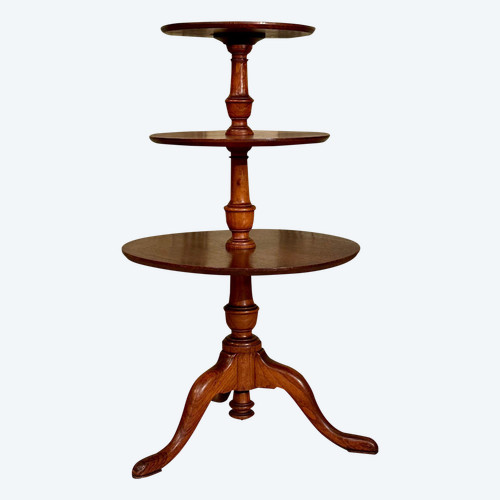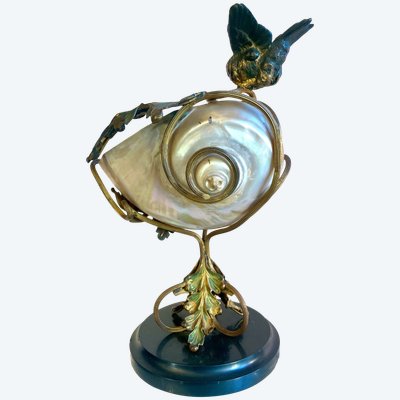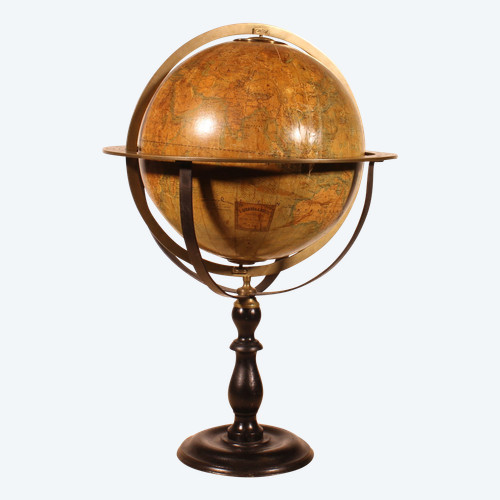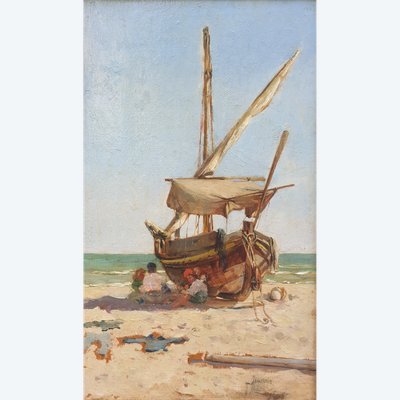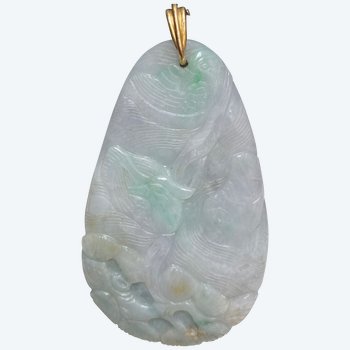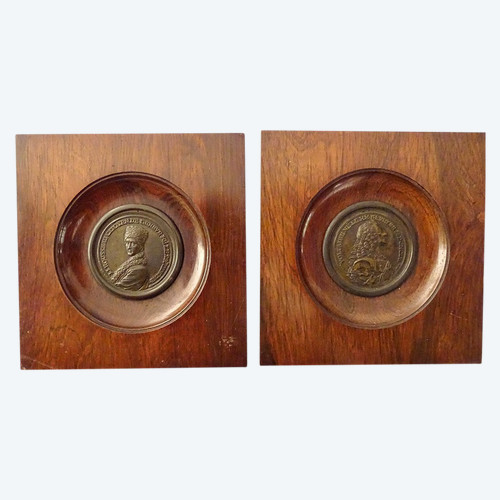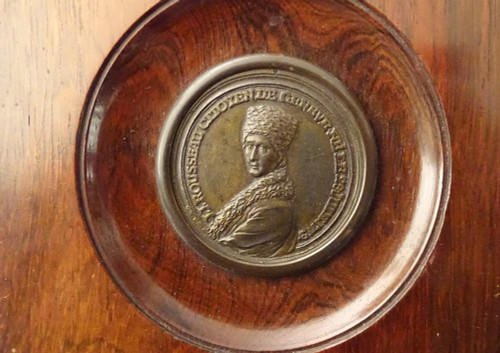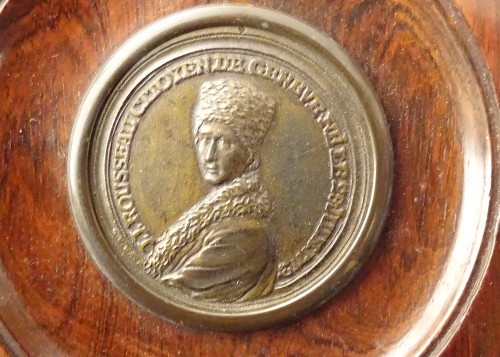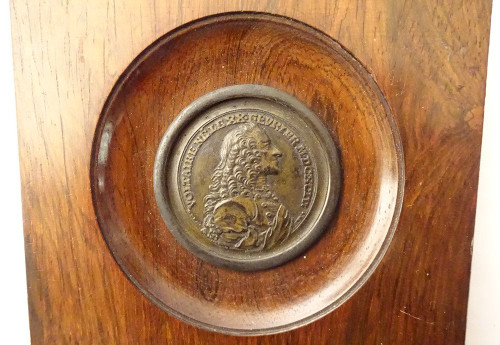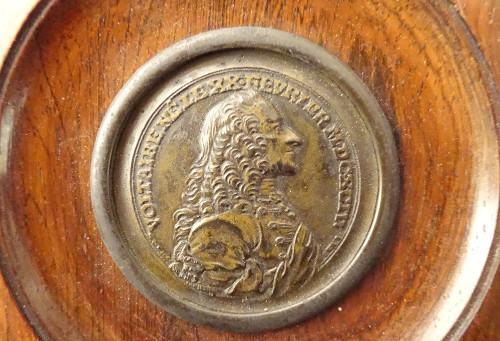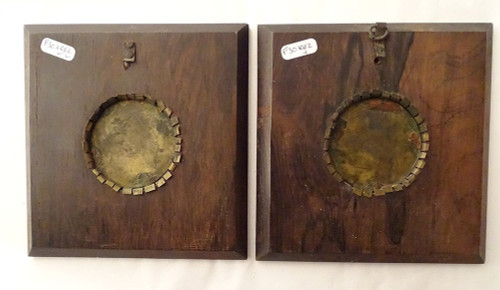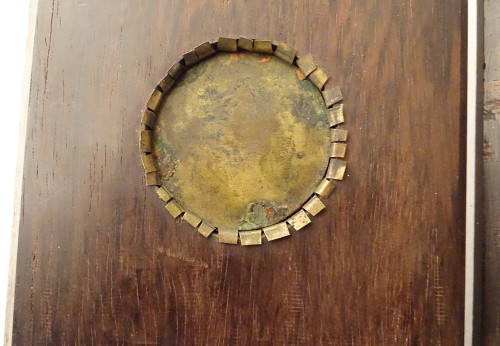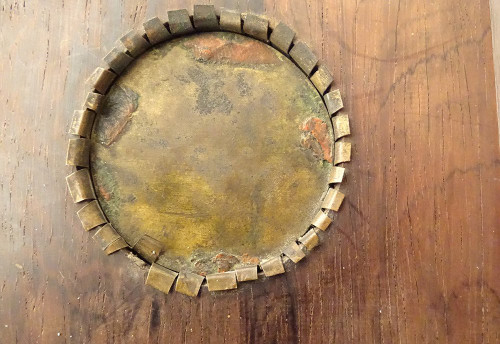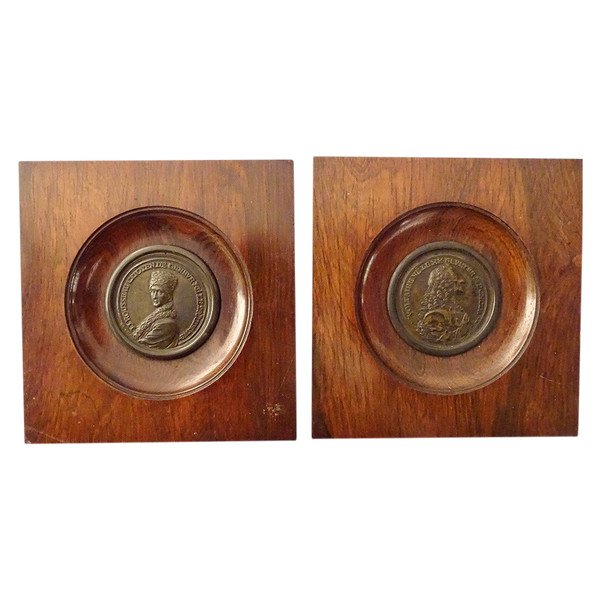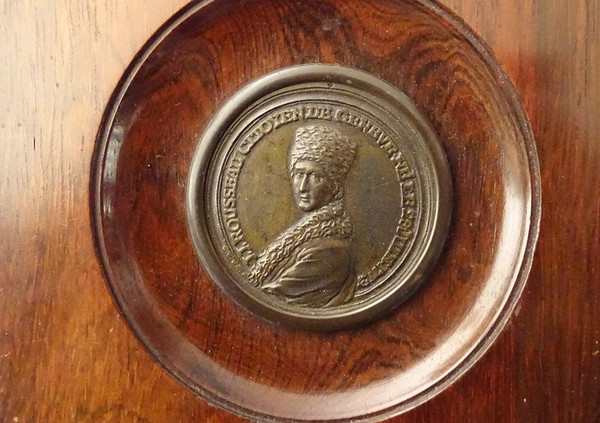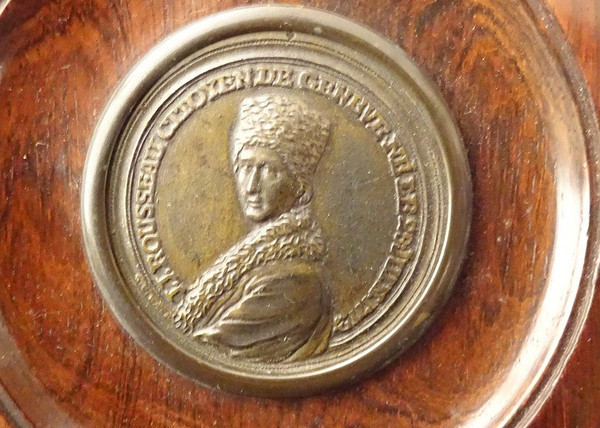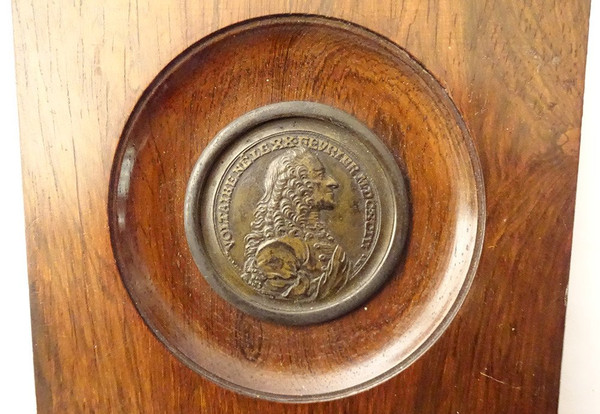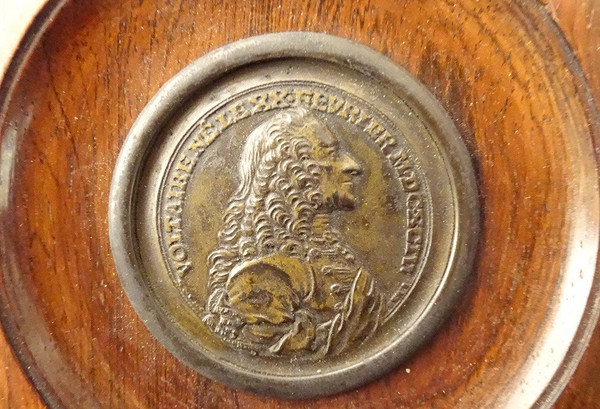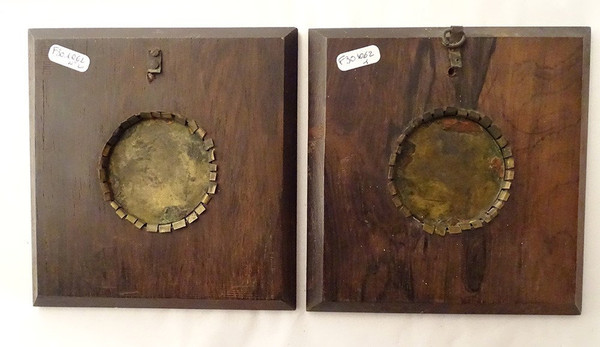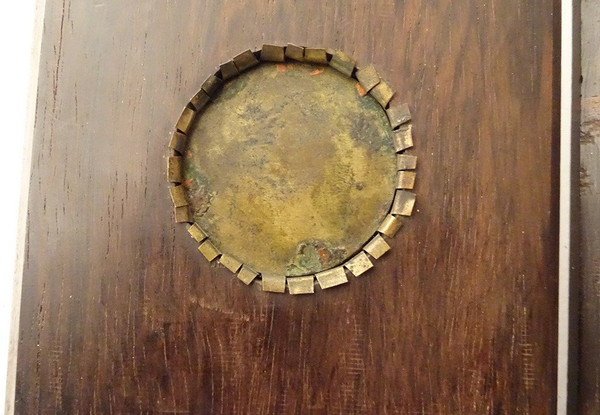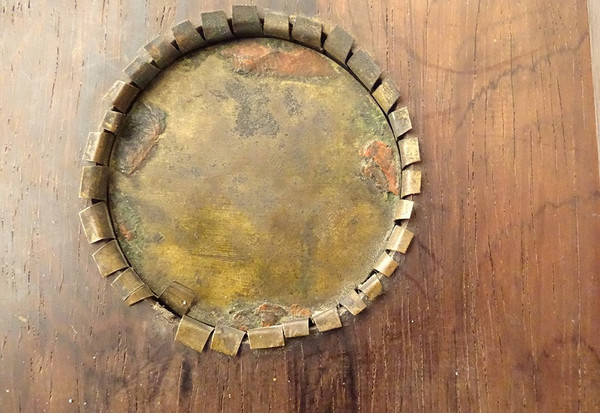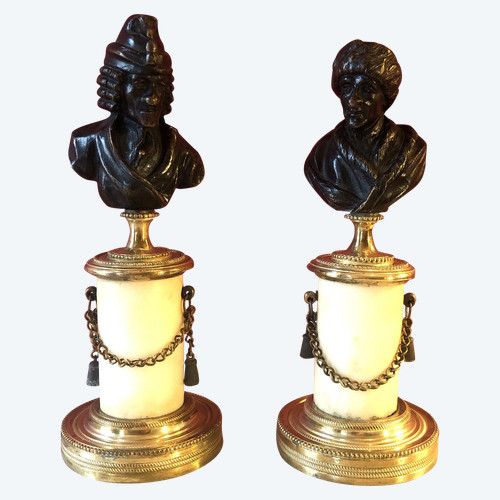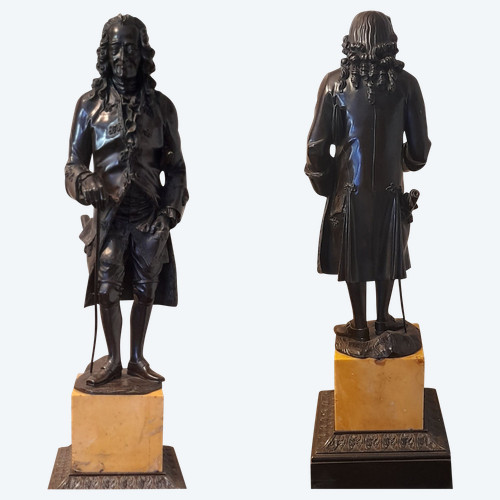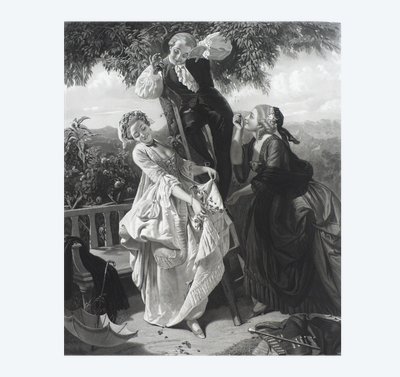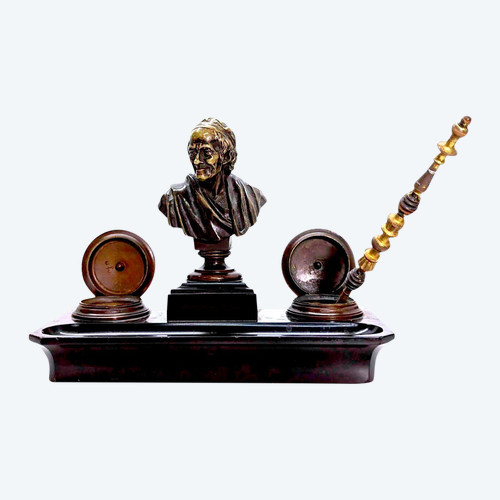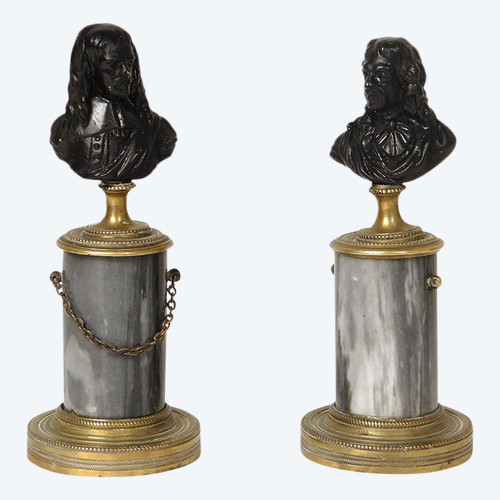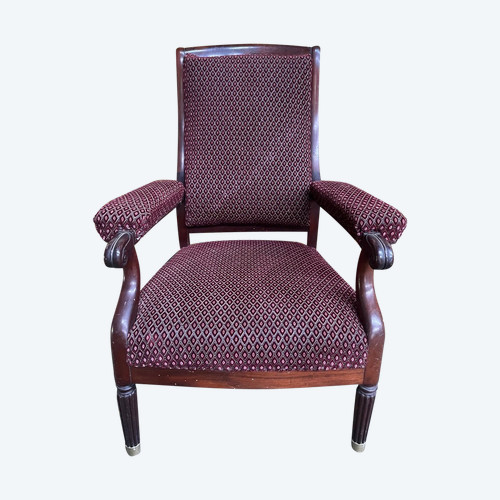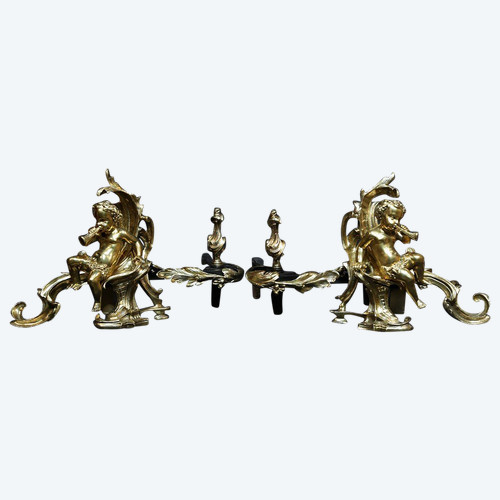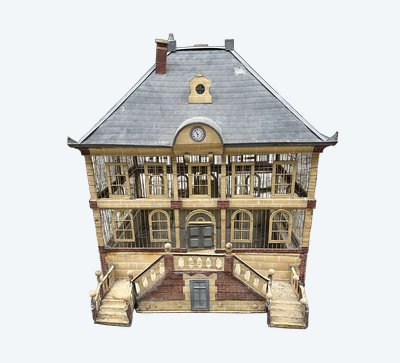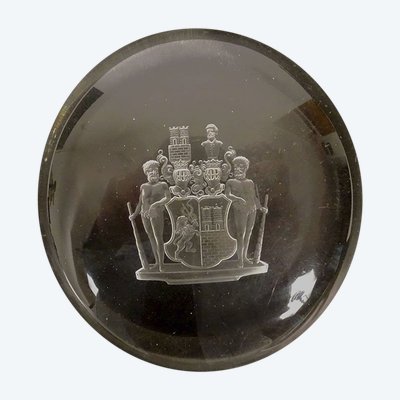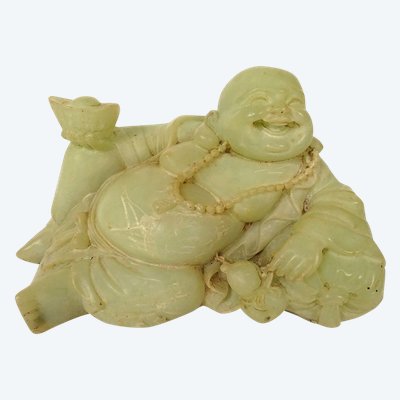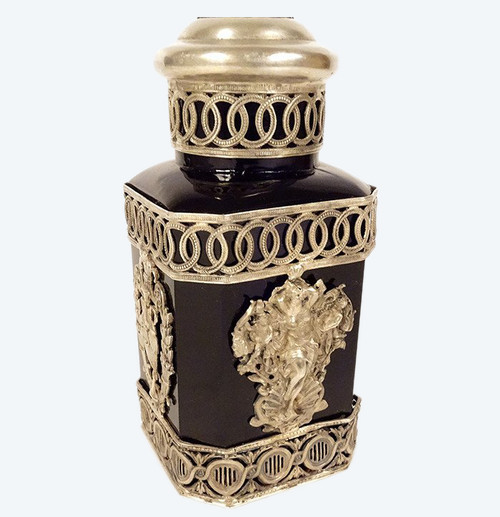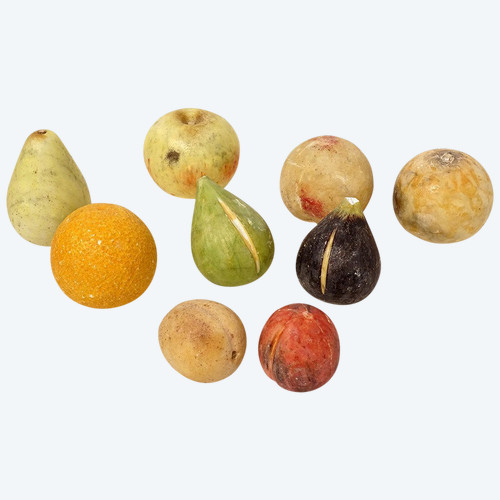This description has been translated and may not be completely accurate. Click here to see the original
Pair of bronze medals representing the bust of Jean-Jacques Rousseau*** "Citizen of Geneva Born June 28, 1712" and the bust of Voltaire** "BORN FEBRUARY XX MDCXCIV", engraver Waechter*, vintage circa 1770 18th century.
These medals are in good general condition, in their original condition. They are presented in later rosewood frames.
Note: wear and scratches on the medals, see photos.
* Georg Christopher Wæchter (1729 - died after 1790)
was a German medalist. He was the son of the oboist Heinrich Waechter and Anna Maria Ritterin. Wæchter was a student of Jean Dassier in Geneva and established himself after the end of his apprenticeship as a medal engraver in Mannheim. When his older brother Johan Georg Wæchter, active in Russia, needed additional help, he went there in 1771. Together they won several medals for various Russian clients. After losing all his property in Russia under unclear conditions, he appeared in Stockholm in 1786. He sought in vain from Gustave III for support and a position as a medal engraver at the Mint. He requested in 1789 an advance for the execution of two medals on the 1789 State Vault and the Naval Victory of Duke Karl, but probably neither medal was produced. In order to earn a living, he announced in Stockholm newspapers in 1790 that he was making seals, wax portraits and teaching young people wax modeling in his house on Norra Smedjegatan in Stockholm. His most famous work is a medal on Voltaire which he made in 1769-1770, but from his stay in Sweden no medal is known. Wæchter is represented, among other places, at the Fitzwilliam Museum at the University of Cambridge.
**Voltaire
François-Marie Arouet, known as Voltaire (1694 -1778) is a writer and philosopher who marked the 18th century and who occupies a special place in French collective memory. He in fact outlines the figure of the intellectual committed to the service of truth, justice and freedom of thought. An emblematic figure of the France of the Enlightenment, leader of the philosophical party, his name remains attached to his fight against “the infamous”, the name he gives to religious fanaticism, and for progress and tolerance. However, he is a deist and his ideal remains that of a moderate and liberal monarchy, enlightened by the “philosophers”. He also acts among the enlightened elites of the Europe of the Enlightenment using his immense notoriety and takes, alone, the defense of the victims of religious intolerance and arbitrariness in cases that he has made famous .
***Jean-Jacques Rousseau (1712-1778)
Genevan French-speaking writer, philosopher and musician. The life of Jean-Jacques Rousseau is one of independence and instability. He first left Geneva at the age of sixteen for Savoy before going to Paris in 1742, thinking of a career in music. He then led a difficult existence, seeking various protectors and living with Thérèse Levasseur who gave him five children. At the same time he met Diderot and wrote articles on music for the Encyclopédie. Rousseau enters the history of ideas with his brief essays. Having taken the opposite view of Hobbes's philosophy, he nevertheless knows a return to the origin is impossible and he continues to reflect on the functioning of a democratic society based on the Social Contract (1762) in which the sovereign people organize collective life . In the literary field, the contribution of Jean-Jacques Rousseau is also decisive with Julie or the New Héloïse (1761), a novel by letters on the English model of Samuel Richardson's Paméla or the rewarded Virtue, which will be one of the biggest prints of the century. Thus, the influence of Jean-Jacques Rousseau is major both in the field of political philosophy by nourishing reflection on democracy and in the field of literature.
Dimensions
Frame 13.8 cm x 13.5 cm
Diameter 5.3 cm
Reference:F30 1062
All photos are on:
www.antiques-delaval.com
Ref: 1315WTSF2J
 Mute Servant Work from the 19th Century
450 € EUR
Mute Servant Work from the 19th Century
450 € EUR
 Art Nouveau Mounted Shell, 19th Century
1.200 € EUR
Art Nouveau Mounted Shell, 19th Century
1.200 € EUR
 CHINESE carved jade and gold pendant
780 € EUR
CHINESE carved jade and gold pendant
780 € EUR

